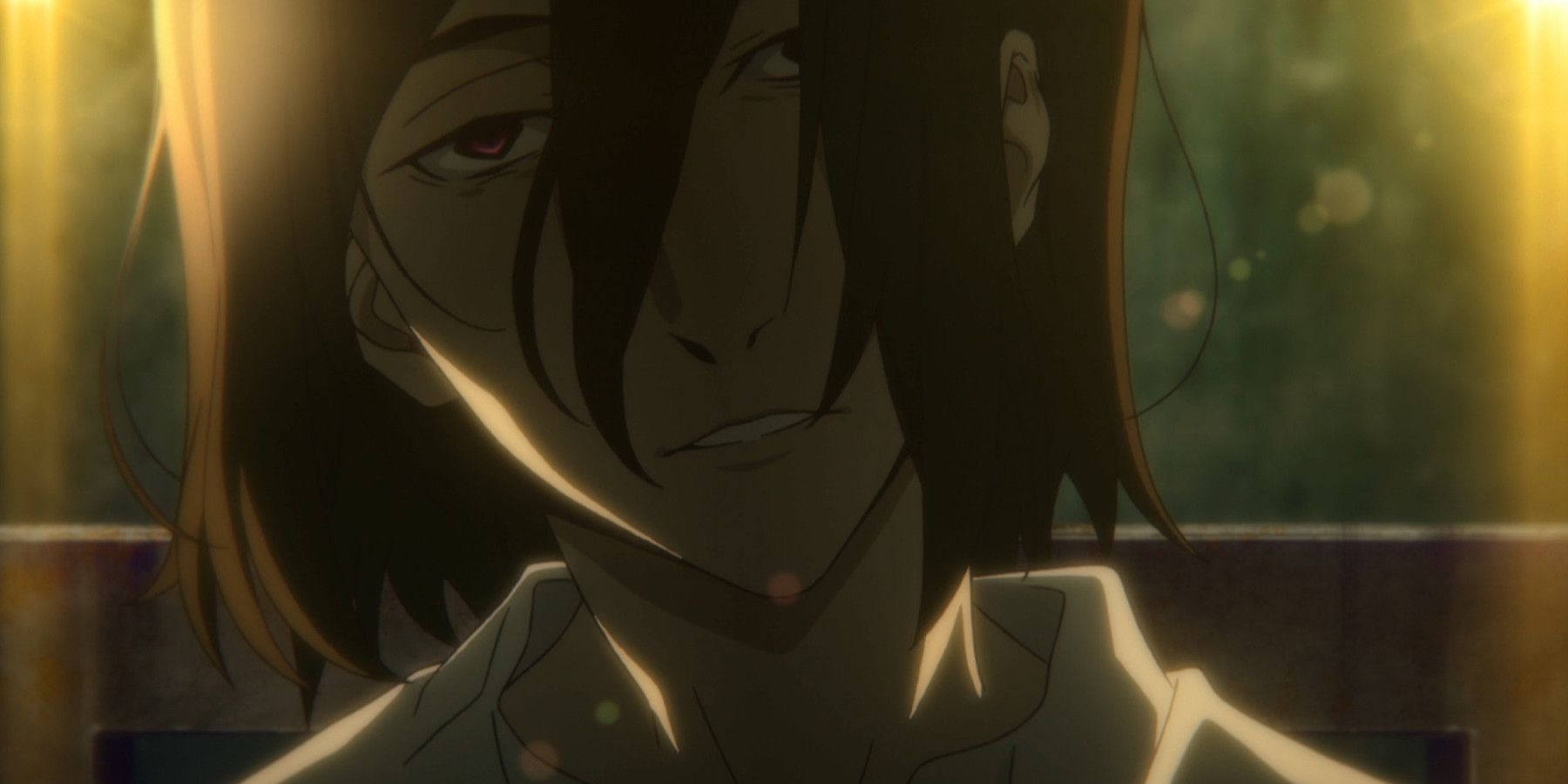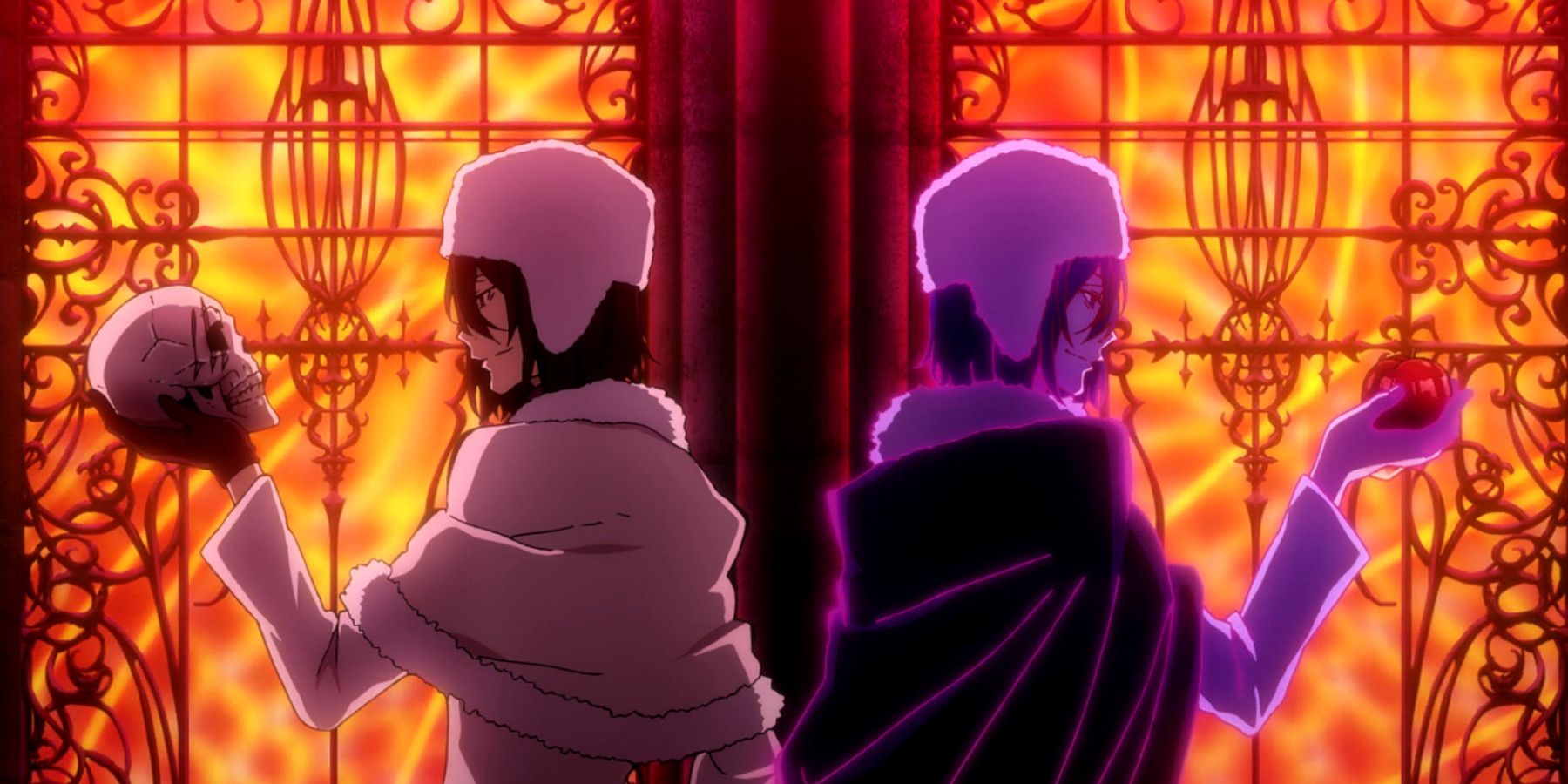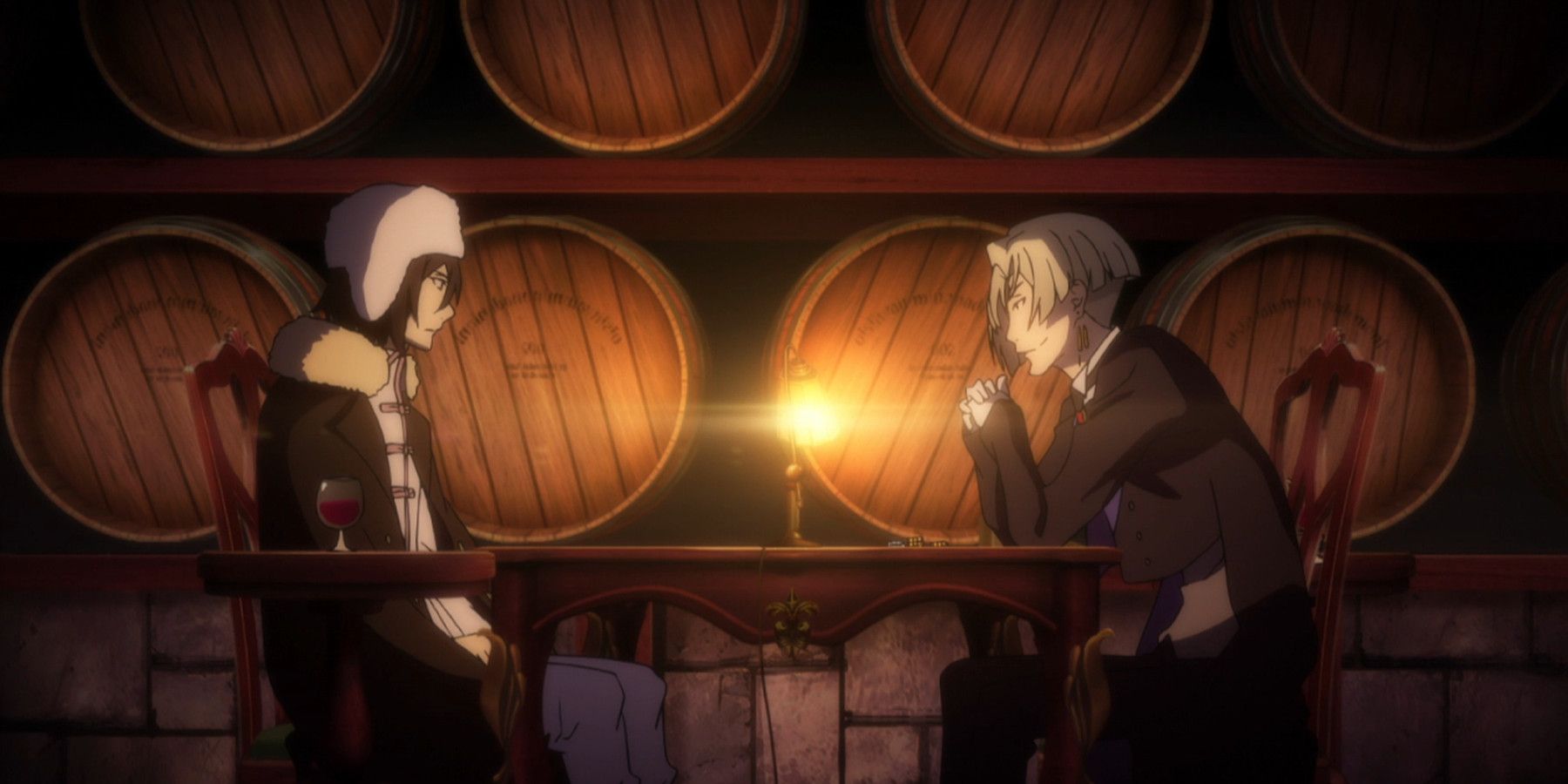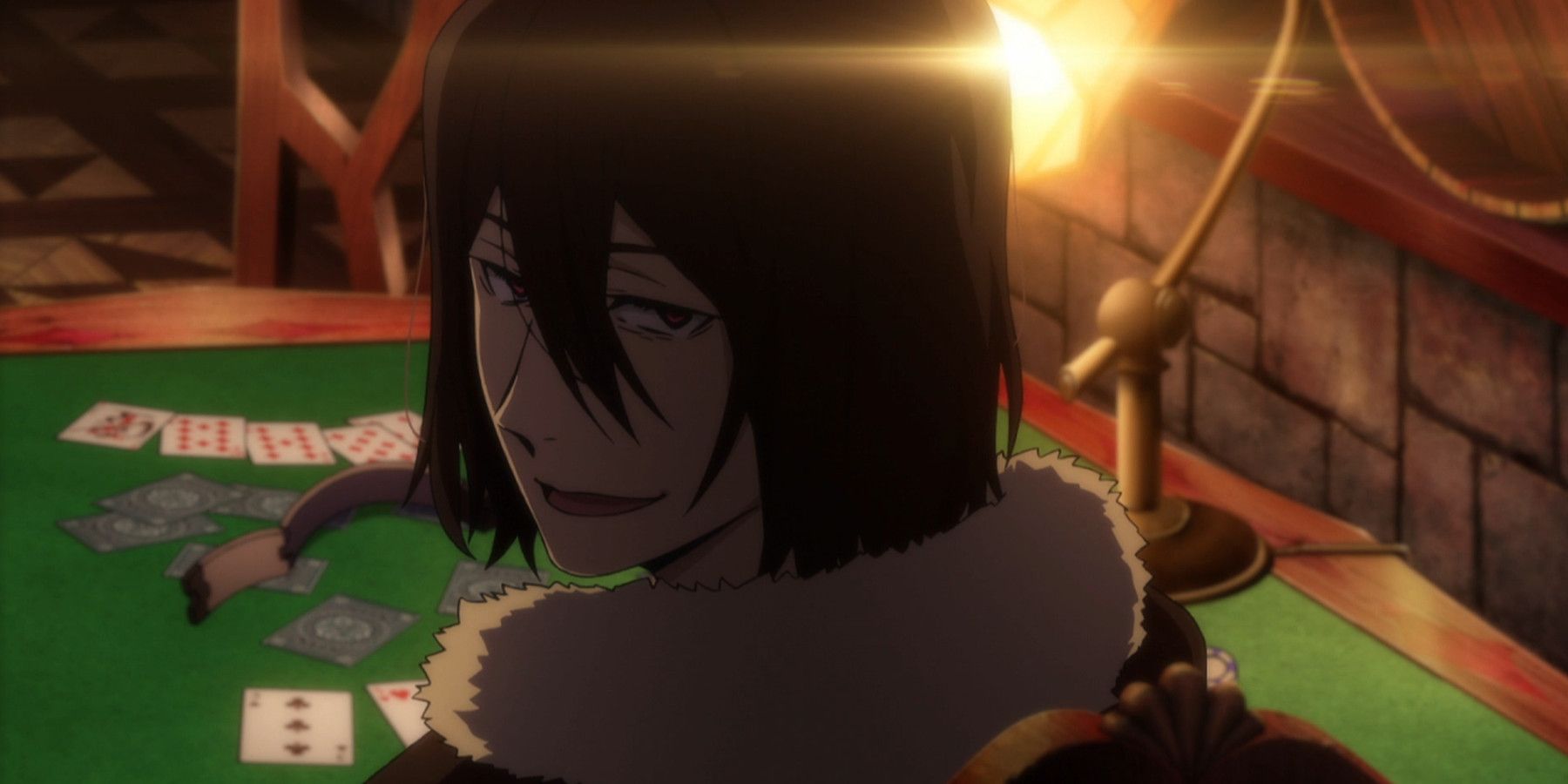Highlights
- The film Dead Apple provides a memorable but not necessarily "proper" introduction to Fyodor as a villain in Bungo Stray Dogs, setting up unforeseen complications.
- Episode 29 focuses on Fyodor as a prisoner of the Port Mafia, pitting him against a surprisingly layered minor character, Ace, creating intrigue and making the audience root for Fyodor's escape.
- Fyodor's ability, named after Dostoevsky's Crime and Punishment, remains a prevailing mystery, adding to his enigmatic nature and making him one of the best antagonists in the series.
Warning: the following contains spoilers for Bungo Stray Dogs: Dead Apple and Bungo Stray Dogs, Episode 29, “My Ill Deeds Are the Work of God,” streaming on Crunchyroll.
The way that a story introduces its villains is crucial because a villain can’t always be the center of attention like the heroic protagonist, but they are often made to feel just as important. In Bungo Stray Dogs, Fyodor Dostoevsky is one of the best and most mysterious antagonists in the series, and his first official introduction laid the groundwork for the show’s best conflict.
Bungo Stray Dogs, by Kafka Asagiri and illustrator Sango Harukawa, is a detective story led by superhumans based on popular literary authors, set in modern-day Yokohama, Japan. Russian author Fyodor Dostoevsky is the main antagonist of Season 3’s Cannibalism arc, but while the manga introduces him in earnest here, anime viewers’ first exposure to him is a bit different.
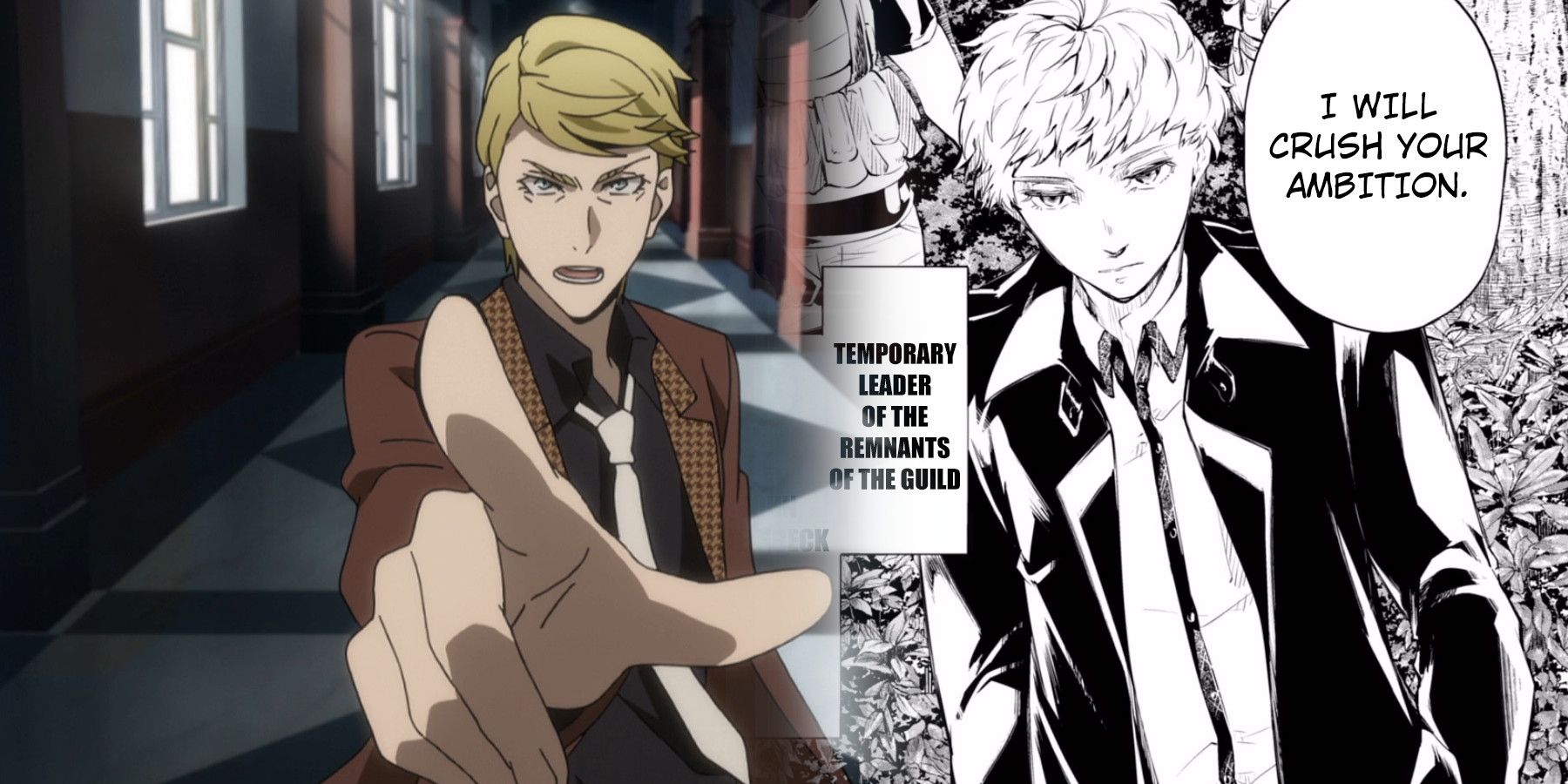
Bungo Stray Dogs’ Big Cliffhanger That Got Cut From The Anime
For a show that's been quite faithful to the source material, it's unusual for such a seemingly significant detail to get cut.
How Dead Apple Introduced Fyodor Early
To be accurate, Fyodor had already appeared at the tail end of Season 2. Under normal circumstances, his next appearance would be during the titular episode alluded to before, but the anime did things differently. Bungo’s 2018 film Dead Apple features Fyodor prominently, and at first glance, this film does him a lot of favors in terms of presentation.
Owing to the film’s ambition as a dramatic action spectacle, Fyodor hijacks the center stage from the main villain in the third act in such a simple but unforgettable way. His betrayal is so theatrical and operatic that, for one who first experienced this film before reading the manga, it’s hard to imagine being quite as excited about this character going into Season 3. With that said, his introduction in Dead Apple, while memorable, isn’t necessarily “proper.”
All things considered, Fyodor just does what he did at the end of Season 2, which is to say, meddling to set up unforeseen complications. In Season 2, He set the Moby Dick on a crash course with the city despite Francis being defeated. Next, in Dead Apple, he created the final boss for the character to fight. The only difference is that, in the latter case, he did so in the spotlight as opposed to in the shadows.
Dead Apple is a cinematic delight, but it's also a film commonly criticized by fans for being a bit confusing, especially towards the end, and Fyodor’s plan only further complicates things. An air of mystique is fine - central to his character, even - but Dead Apple exists more to amaze than to build intrigue, and so it can’t be understated how important Fyodor’s official introduction is.
Enter, The “Demon” Fyodor
Episode 29 is a fascinating story that follows Fyodor as a prisoner of the Port Mafia, specifically under the watchful eye of Ace, an as-yet unintroduced executive in the organization, but one the audience gets to know quite well in a short time. Presumably based on British author Alan Bennett, he is rich and resourceful, but also cocky and arrogant, and an outsider even among the mafia’s elite.
Despite the animosity between him and other executives, Ace is given the freedom to personally interrogate Fyodor. In secret, he plans to bring Fyodor to his side and rebel against the mafia, not that there’s much choice in the matter. His ability, “The Madness of the Jewel King,” allows him to convert the lives of his collared subordinates into jewels of equal value. He wants Fyodor to put on a collar of his own.
By pitting Fyodor against Ace, a surprisingly layered minor character, it makes the audience root for him to escape. This desire is only intensified by the presence of Karma, a boy who’s been trafficked and ends up as one of Ace’s henchmen. This kid has forced himself to be content with this life and abandoned his dreams of escaping.
He considers it impossible to defeat Ace and warns Fyodor as such, but the latter isn’t worried. Better yet, he is certain he can win because his ability allows him to manipulate consciousness and space. Or, at least that’s the lie he tells, just one misdirect in the longest-running mystery of the series and the foundation of this episode’s glorious climax.
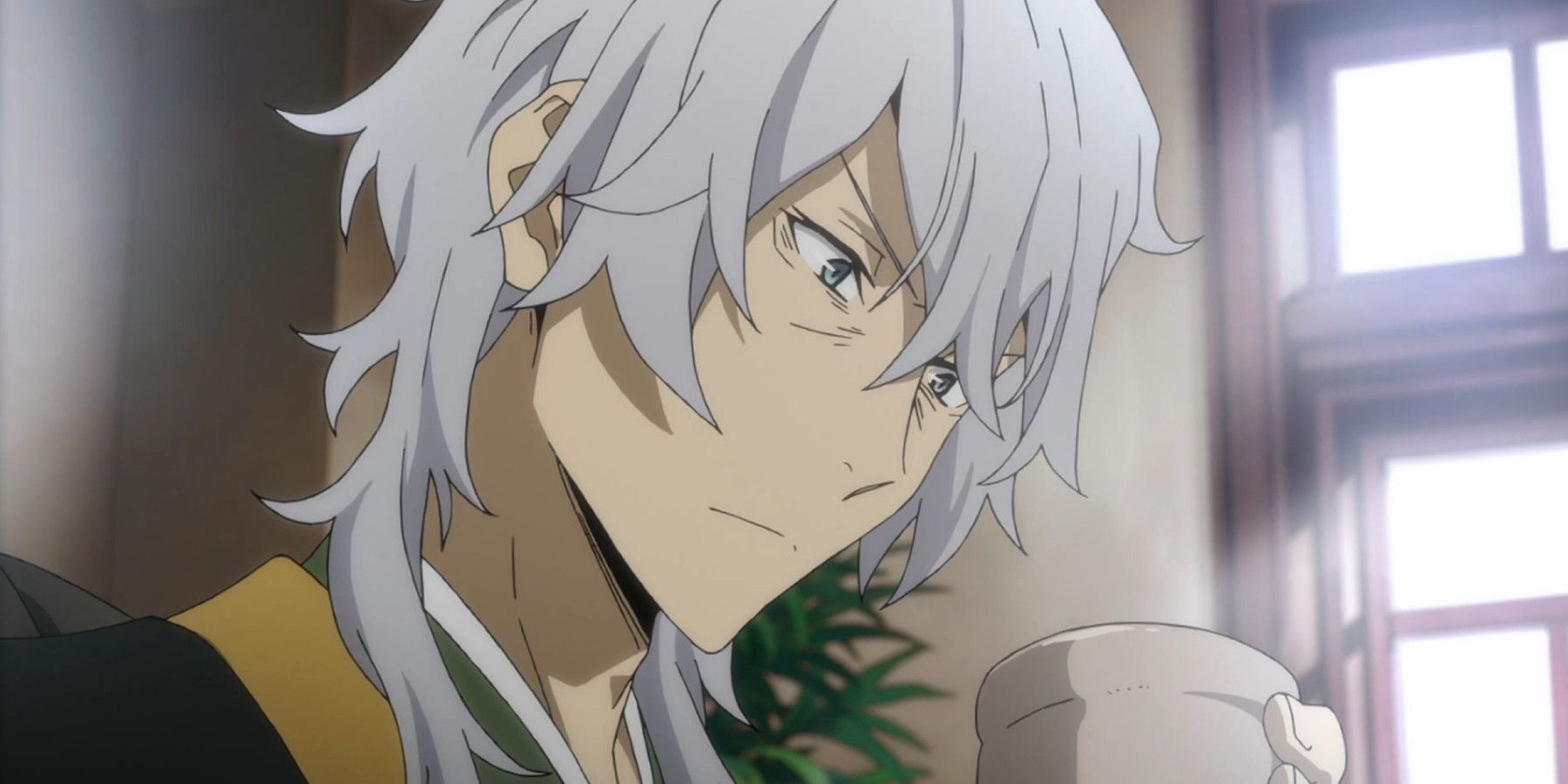
Bungo Stray Dogs: Yukichi Fukuzawa's Ability, Explained
The leader of the Armed Detective Agency possesses a power that would hardly fit any other character, but what makes it special?
Bungo’s Most Prevailing Mystery
The only thing known for certain about Fyodor Dostoevsky’s ability is that it is named after Dostoevsky’s novel, Crime and Punishment. Apart from that, nothing else is known, and even the biggest clues are vague, only begging more questions. And his is the only ability to receive this treatment. Almost every other character explains their ability or has it explained by someone else.
On the first watch, it’s expected that Fyodor has the advantage, but not for the right reason. In a series where twists often revolve around clever usage of abilities, it’s a rare and effective surprise when something that should be an ability turns out not to be. Subsequently, when Ace reveals he eavesdropped on the conversation with Karma and that he knows Fyodor’s ability, it all seems to add up.
Fyodor decimating Ace in the card game by memorizing the tiny scratches on the cards is just ridiculous enough that it makes sense that it would be a dream that Fyodor is creating. Since this Bungo Stray Dogs, however, that kind of ridiculousness is just on-brand enough. Still, all the little inaccuracies in the room support the theory, like the broken clock or the door that won’t open. And yet, it’s not a dream. Fyodor just broke a few things and jammed the lock.
In the end, Ace’s overconfidence is his downfall, and he kills himself, certain that he’ll just wake up. Fyodor steals intel he willingly got kidnapped to acquire, but not before one last act that puts the demon into perspective. He kills Karma with his ability, without an explanation as to what his ability is, and the conditions needed to activate it. Strangely, there’s a hint of twisted kindness in the act, as if Fyodor were fulfilling the boy’s wish for freedom.
The key to this episode’s success is how it relies on the perspectives and subtle intricacies of Ace and Karma to garner intrigue about Fyodor, his morals, and his ability. Even confined to a single episode, these characters leave a strong impression and their deaths serve to set up an incredible arc and one of the best antagonists in Bungo Stray Dogs.
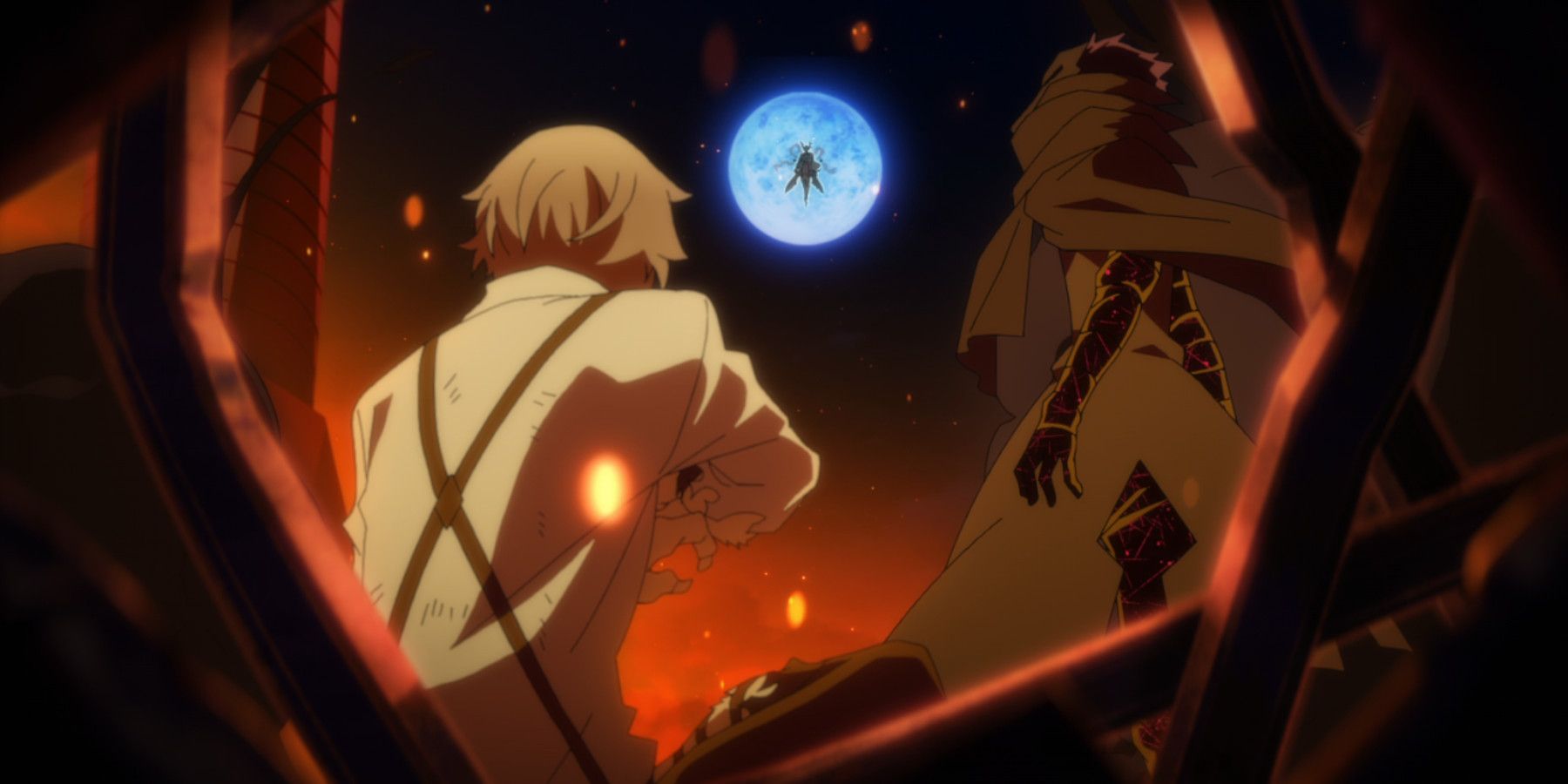
Bungo Stray Dogs Season 6: What Will Happen During The Two-Hour Gap?
Bungo Stray Dogs has left the entire fandom wondering about the two hours between the end of Season 5 and the post-credit scene.
